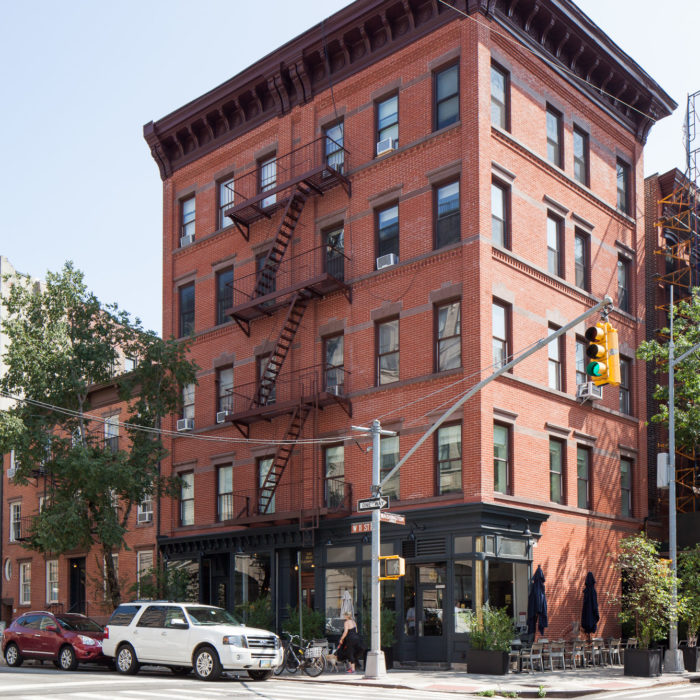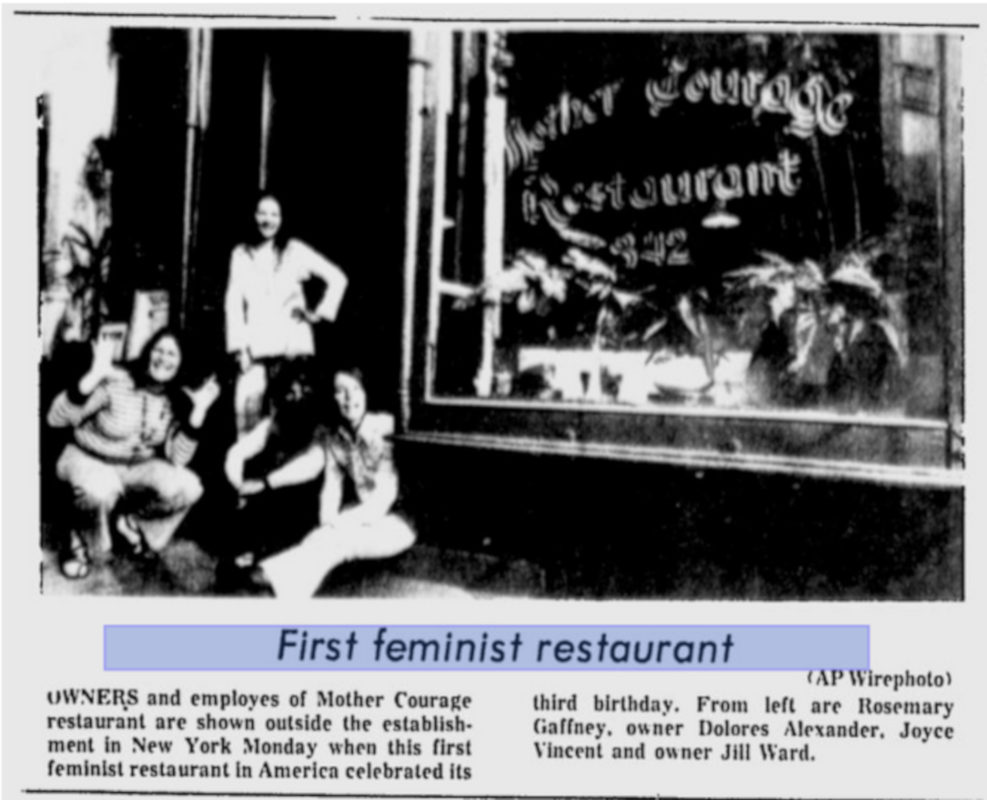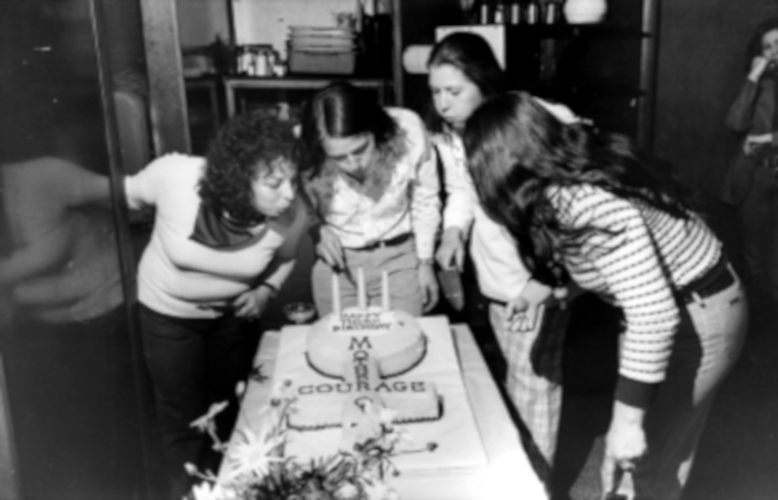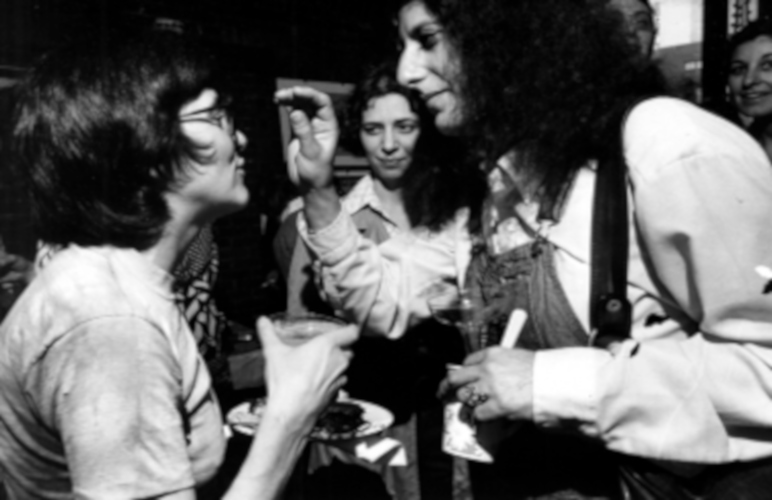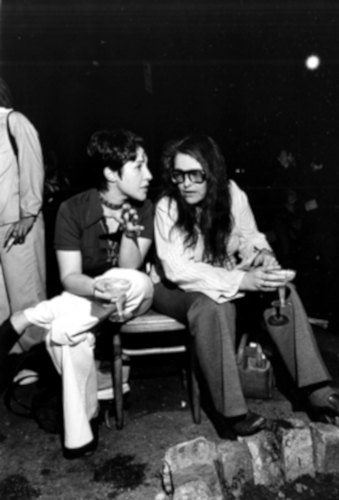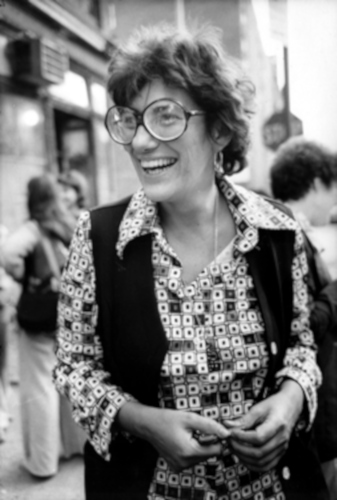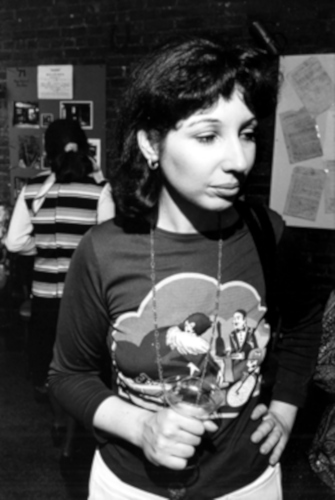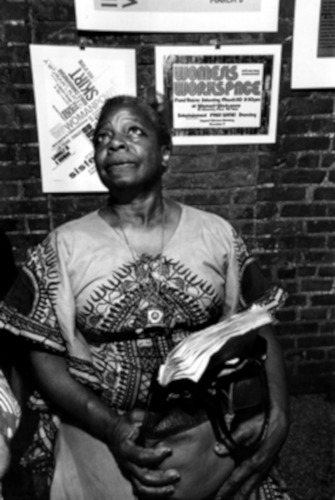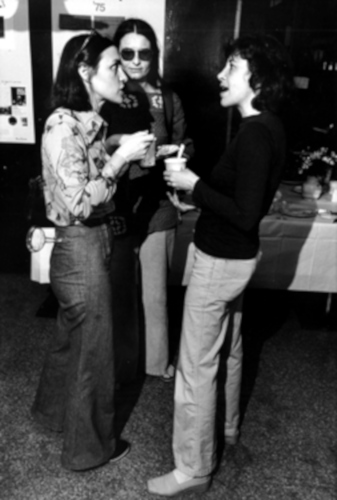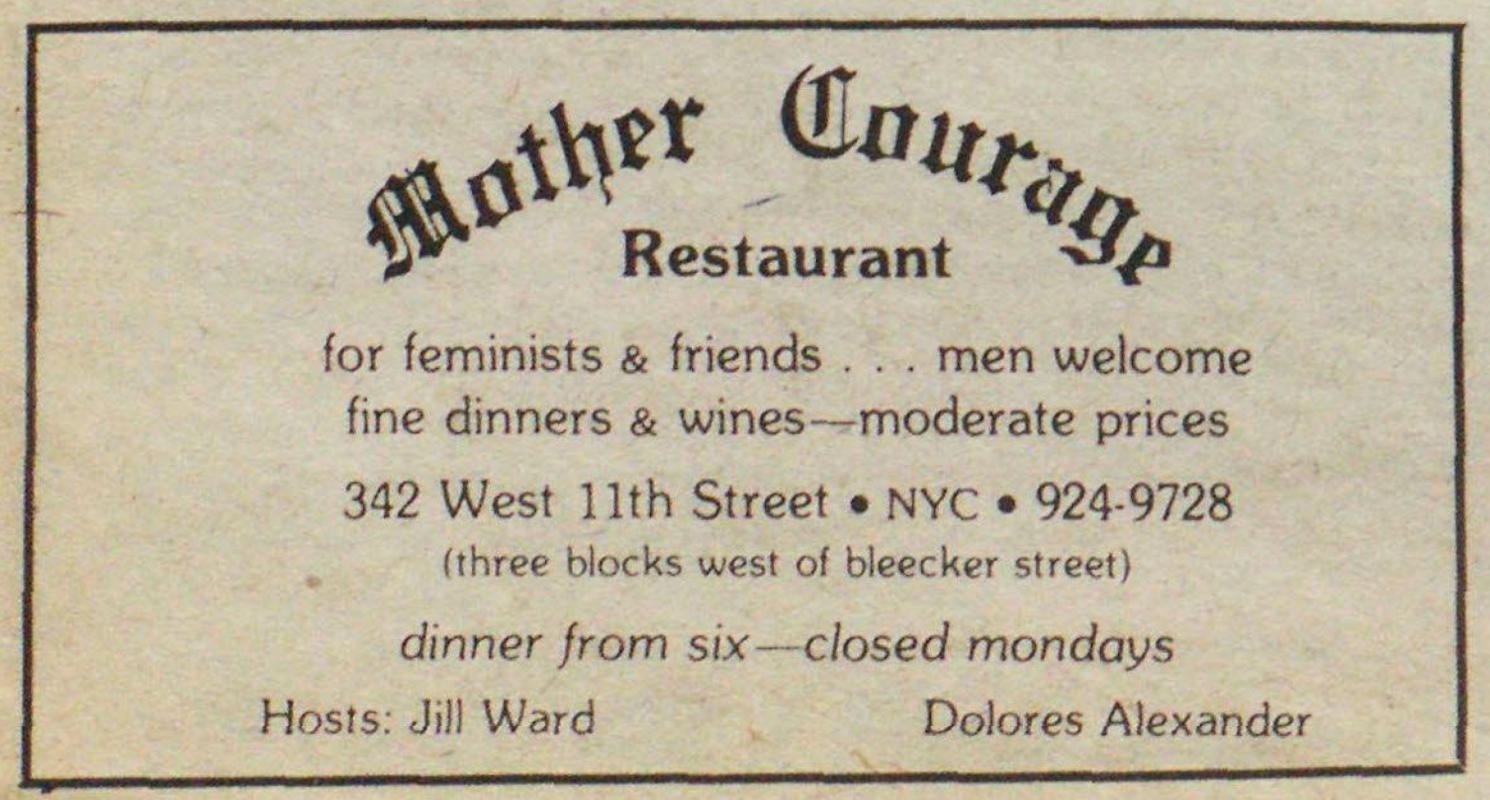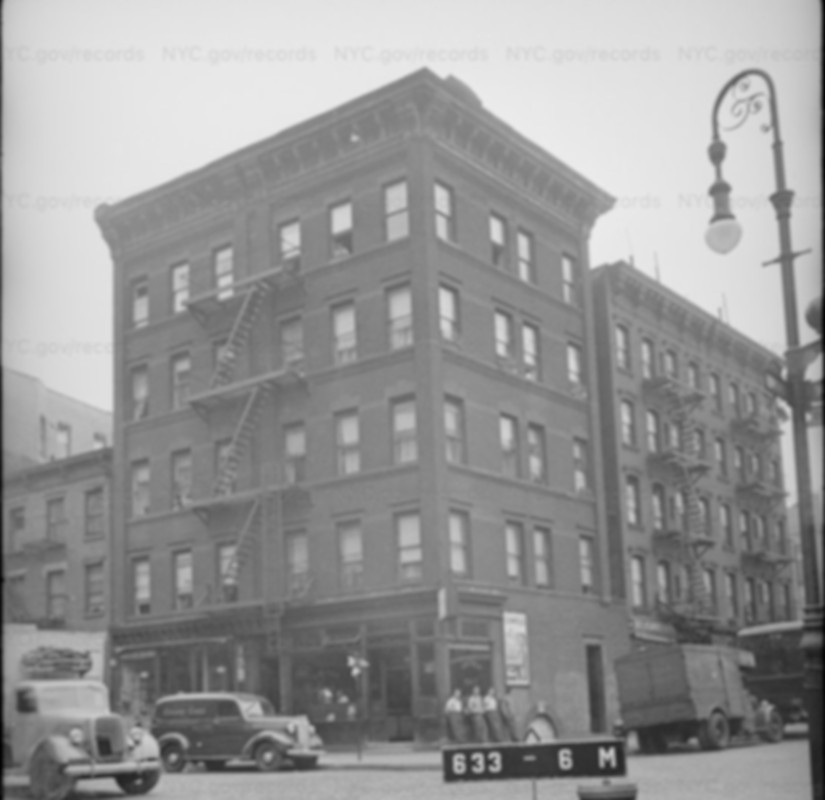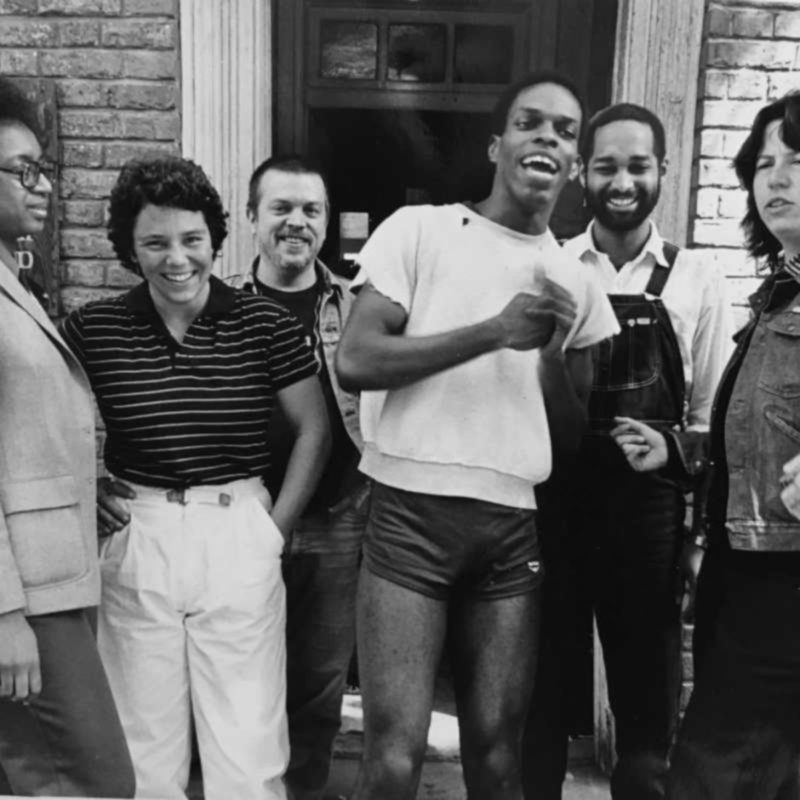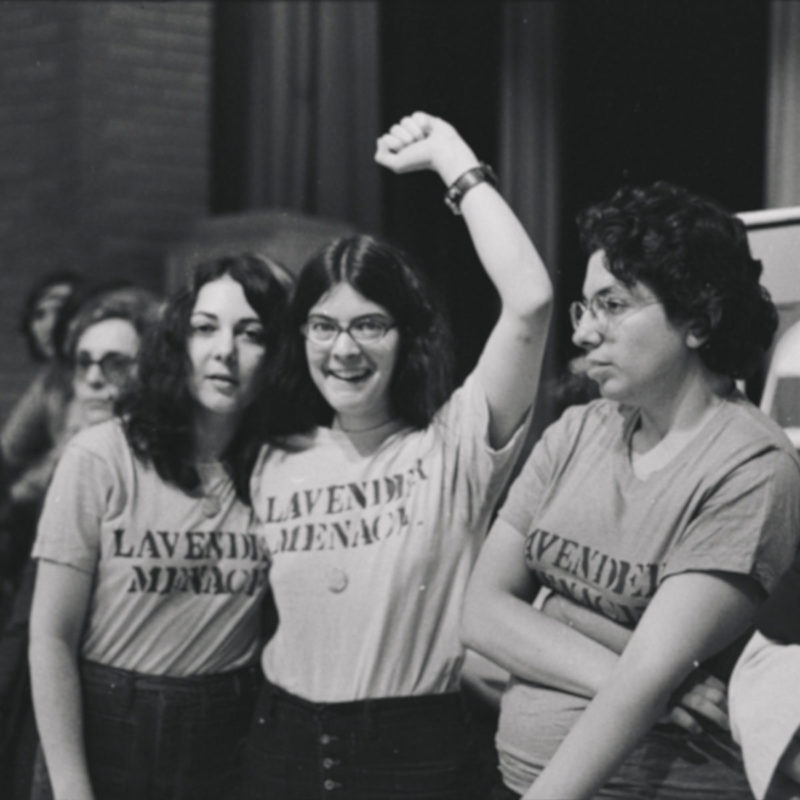overview
Mother Courage was the first feminist restaurant in the United States. Owned and operated by Dolores Alexander and Jill Ward from 1972 to 1977, this restaurant primarily attracted lesbian and straight women involved with the women’s liberation movement.
It set a precedent for female-run restaurants as social gathering spaces and inspired other feminist restaurants around the country.
History
Opened by Dolores Alexander (1931-2008) and Jill Ward at the former site of Benny’s Soda Luncheonette and Delicatessen in 1972, Mother Courage became a popular gathering space for women’s liberation movement “‘heavies,’ straight and gay” according to the New York Gay Guide. Named after the powerful female protagonist from Bertolt Brecht’s play Mother Courage, the restaurant, as stated in Clone, was aimed at “feminists and their friends.” Men were welcome, but Mother Courage primarily served as a safe haven where women could dine alone or with female friends without fear of being hassled.
The idea for Mother Courage came to Alexander and Ward, lifelong friends and former lovers, while on a trip to Bridgehampton, NY. Both were looking for new opportunities. Ward had resigned from her position at an accounting firm and Alexander had left her job as the first Executive Director of the National Organization for Women (NOW) in 1970. Alexander was the only high-up member of NOW to resign due to anti-lesbian sentiment in the early inception of the organization. After a late-night craving for spaghetti and meatballs, Ward joked, “that’s what we should do, open a spaghetti house.” Alexander agreed, and they quickly began conceptualizing Mother Courage.
Alexander and Ward ran into numerous challenges when opening Mother Courage, largely due to the fact that they were women. Restaurant ownership was considered a man’s business. As women, they could not obtain a bank loan, faced a host of permit delays, and even received threats from the Securities and Exchange Commission which was warned about the “two freaks from the Women’s Lib.” Men often asked why they sought liberation through a business venture that relegated women to the kitchen. Alexander responded:
We’re not fighting for the right to do dishes, but for a chance to run a business that will make us independent. We want to open a restaurant that will be owned, operated and staffed entirely by women. The fact that we’ll be running a business is pertinent to the women’s lib movement.
Despite these challenges, Alexander and Ward renovated the restaurant and raised the capital with the help of family, friends, and fellow feminists. They acquired the majority of the capital through small loans from friends in the women’s liberation movement.
Upon opening, Mother Courage became a popular retreat for local feminists and a destination for women visiting from other parts of the country and world. The home-cooked food, according to reviews, was decent but not the main attraction. Even Rosemary Gaffney, one of the restaurant’s cooks, admitted that people came for the “feminist ambiance.” In addition to hosting feminist art shows, Mother Courage was decorated with a picture history of the restaurant on the walls and a description of the restaurant’s trials and tribulations in the unisex bathroom. Regular diners, such as Audre Lorde, Jean O’Leary, Maxine Feldman, and Susan Brownmiller, enjoyed Mother Courage’s small liberating gestures, including pouring wine for women to sample and placing the check equidistant between diners.
Mother Courage closed in 1977, but feminist leaders have widely cited its influence. Author Lucy Komisar wrote that Mother Courage was “more than a restaurant, this is part of a social movement” and writer Phyllis Chesler expressed that “revolutions were dreamed here as we broke bread.” It was one of the few places where women from various groups of the women’s movement, including New York Radical Feminists and Redstockings, could unite. Mother Courage served as a pillar of female independence and liberation that inspired other feminist restaurants nationwide.
Entry by Emily Kahn, project consultant (June 2020).
NOTE: Names above in bold indicate LGBT people.
Building Information
- Architect or Builder: Julius Munckwitz
- Year Built: 1890
Sources
Andrea S. Gruen, “What’s Up, Dyke?,” Gaysweek, no. 36 (1977), p. 15.
Ann T. Powers, “Womens’ Culture- Where It’s At,” Clone, 1974, p. 10.
Belita Cowan, “The New Woman’s Survival Sourcebook,” Her-Self (1976), p. 15.
“Focus on Me,” NYRF New York Radical Feminists Newsletter 5, no. 10 (October 1957), p. 9.
Frank W. Corrigan, “Women’s Lib Takes the Plunge — Into Business,” Newsday, October 8, 1971.
Jill Ward, “For Dolores,” North Folk Women for Women Fund, 2008, bit.ly/3fk3Ijd.
Jim Jerome, “Feminists Hail a Restaurant Where the Piece De Resistance is An Attitude, Not a Dish,” People Magazine, June 2, 1975, bit.ly/3dVNvAf.
Joyce Vinson, “Mother Courage and Dolores Alexander,” North Folk Women for Women Fund, 2008, bit.ly/3fk3Ijd.
Lauren Oyler, “Eating Out, as a Feminist,” Vice, September 28, 2015, bit.ly/2XRAp1w.
Linda Wolfe, “Among Friends,” New York Magazine 6, no. 20 (May 14, 1973), p. 100.
Miriam Klein, “S.E.C. Braces for ‘Lib Freaks,” Majority Report, April 1973, p. 19.
“New York Lesbian and Bar Guide: Dining,” Echo of Sappho, no . 4 (1973), p. 3.
Paula Kassell, “Eating Out,” New Directions for Women, Winter 1975-1976, p. 9.
“Restaurants,” New York Gay Guide, November 20-December 3, 1975, p. iii.
Sarah Bean Apmann, “Mother Courage- Serving Feminism and Food,” Off the Grid, Greenwich Village Society for Historic Preservation, March 16, 2017, bit.ly/2Y55uyP.
Do you have more information about this site?
This project is enriched by your participation! Do you have your own images of this site? Or a story to share? Would you like to suggest a different historic site?
